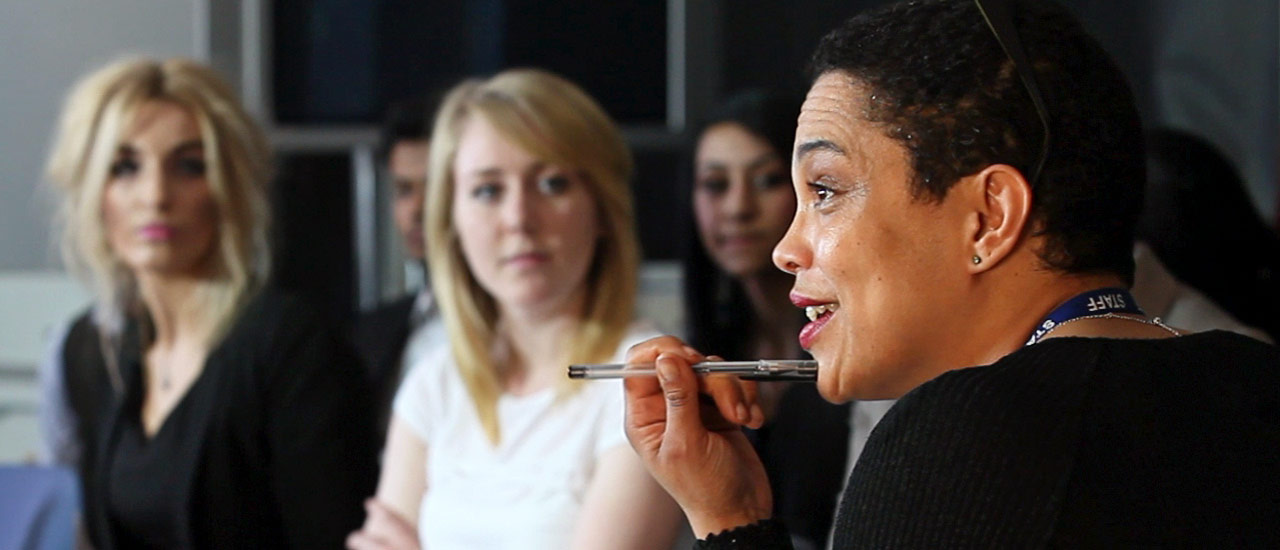Overview
Master's Curriculum
Certificate Curriculum
Careers
Faculty
Admissions
Tuition & Fees
Contact Us
|
Overview | Master's Curriculum | Certificate Curriculum | Careers | Faculty | Admissions | Tuition & Fees | Contact Us |
Note: This program is currently not accepting applications.
Master's curriculum
Oregon State's online College Student Services Administration master’s program takes a student-centered approach by “flipping” the classroom and allowing you and your fellow Ecampus students to bring a wide range of experiences to the table to guide the learning process.
Degree requirements
A total of 54 quarter credits are required to graduate with your Oregon State CSSA master's degree. Degree requirements and curriculum information are available on OSU's academic catalog.
A list of courses for the Ed.M. program is also available on the College of Liberal Arts CSSA curriculum overview page.
Choose a specialization or graduate minor
You can choose to select an area of specialization (functional area, topical area, etc.) to enhance your learning experience. You can also elect to pursue a 15-credit minor with coursework within or outside of the CSSA department. Your major professor will guide you in selecting the most appropriate and meaningful route for you.
Sample course topics
- CSSA and social justice
- Internship in college student services
- History of higher education
- Programs and functions in college student services
- Principles and theories of student development
- Legal issues in higher education
- Professional development in CSSA
- Organization and administration of college student services
- Budget and finance
- Multicultural issues in higher education
- Research and assessment in higher education
- Fundamentals of counseling
Additional program features
Internship
As a CSSA student, you will participate in experiential learning opportunities including an internship or practicum with an organization that matches your career goals. This will allow you to apply your academic experiences to practical, real-world settings. Your hands-on internship could be with a local community service agency, community college or other student services organization.
This is not a licensure program
In compliance with an agreement with the Oregon Higher Education Coordinating Commission for participation in the State Authorization Reciprocity Agreement (SARA), Oregon State University provides information regarding professional licensure through distance education. The courses and programs, delivered online by OSU Ecampus, are not formally approved for professional licensure outside of the state of Oregon.
State of Colorado: This program requires an internship. Although Oregon State University participates in the National Council of State Authorization Reciprocity Agreement (NC-SARA), due to Colorado’s Workers’ Compensation Act, we have limited authorization to offer programs that require internships in the state of Colorado. The Colorado internship site must provide workers’ compensation. In some cases, a proposed internship site may not provide worker’s compensation insurance and, as a result, is not available as an internship site. Please contact Shannon Riggs, associate vice provost for educational programs and learning innovation, with questions.
Important dates
See our academic calendar for our full quarter term schedule.
Degree quick facts
* Oregon State University is on a quarter-term system. There are four quarters each year and classes are 11 weeks long. This program's 54 or 18 quarter credits are equal to 36 or 12 semester credits.
† Based on current tuition rates. No additional charge for nonresident students. Does not include course materials and associated fees and expenses.
‡ You can complete all or nearly all requirements of this program online. View the curriculum.
Find application deadline
View required or recommended deadlines for your student type on our application deadlines page.
Ready to apply?
Once you've gathered the information you need to know before you apply to Oregon State University, take the next steps.


